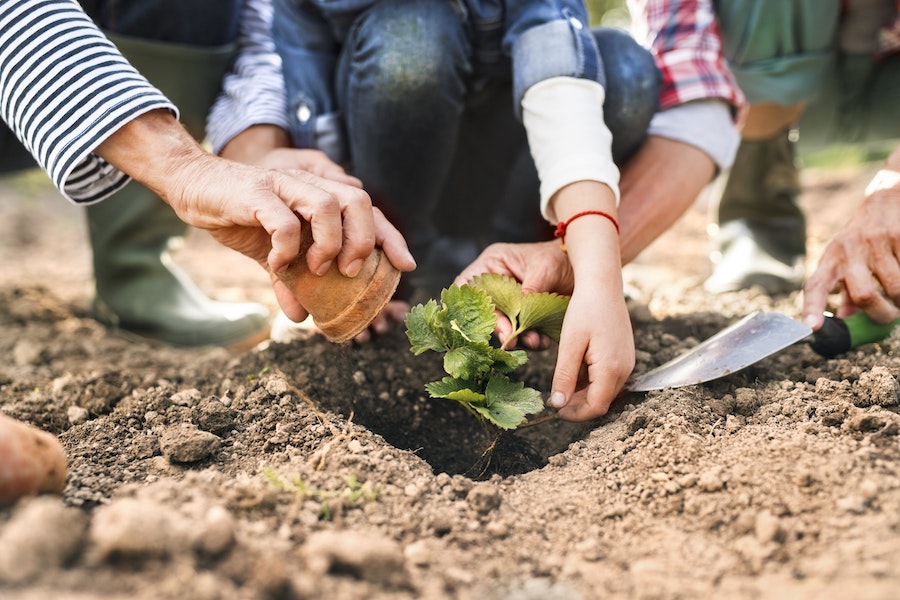6 ways you can personally contribute to hitting the UK’s new 2050 climate target
Our collective carbon footprint is a worry that concerns many of us, and it’s something the government is planning to address over the next 30 years.
Prime Minister Theresa May has just pledged that the UK will become a carbon neutral country by 2050, under a new plan to tackle climate change.
Many businesses, faith leaders and climate change campaigners have written to me in support of a #NetZero emissions target.
Here’s my response confirming that the UK will be the first major economy in the world to legislate for it. pic.twitter.com/xEHy58rhJY
— Theresa May (@theresa_may) June 12, 2019
The government will be ramping up action to reach this new target, and hitting ‘net zero’ – a 100% cut in emissions – will likely mean we’ll have to make changes at home, from switching to electric boilers to considering cycling and electric vehicles over diesel and petrol cars.
Thankfully, being energy efficient doesn’t mean going without a warm and well-lit home, and there are several effective actions you can take to lower your carbon footprint now.
Many of them are simple and could even save you money in the long run. Here are just a few to try…
1. Have meat-free days
The meat industry is a key contributor to climate change. Cows release methane, a greenhouse gas, and to rear they require huge amounts of land, water, and food. In fact, a recent study claimed that avoiding meat and dairy products was the single biggest way to reduce your environmental impact.
You don’t have to give up meat entirely – you could consider becoming a flexitarian instead, where you switch between veggie and meat options. Simply cutting back your consumption, so you have a few meat-free days a week, can make a huge difference.
2. Unplug your devices at night

Plenty of people don’t realise that leaving certain devices plugged into the wall, when they’re not in use, wastes energy.
They’re called ‘energy vampires’ because they continue to use energy and drain power, even when you think they’re turned off. Major culprits are phone chargers, TVs on standby mode, computer cords and coffee makers.
Astoundingly, an average home spends up to £86 a year on standby energy – so once you’ve used a device, unplug it. You’ll be saving your wallet and the environment in the process.
3. Plant a tree in your garden
View this post on Instagram
Trees are great for the environment because they produce oxygen and remove carbon dioxide and contaminants from the air – they’re a way to offset your carbon footprint. Plus, they’re lovely to look at and provide some shade in the summer months.
If you don’t have the space for a tree, you could plant a balcony garden, or even just pot some greens on your windowsill.
4. Dry your clothes on a washing line
Why use electricity to dry clothes in a tumble dryer, when you could save that energy by hanging them up outside instead?
5. Insulate your house
View this post on Instagram
This one is a bit more costly to begin with, but could save you some cash further down the line.
Well insulated houses use less energy to keep them warm. Relying on central heating means more carbon dioxide – a greenhouse gas – is released into the atmosphere from the burning of fossil fuels to power many of our our boilers.
By better insulating your home, you can save money and lower your carbon footprint. If you’re feeling a slight chill, get into the habit of throwing on a jumper or a blanket rather than instinctively cranking up the central heating too.
6. Embrace slow fashion
View this post on InstagramGet your upcycle on with customized embroidery.⠀ Depop shop: saintsoup ⠀ #depop
Fast fashion consumes worrying amounts of water, uses toxic chemicals and ultimately, often ends up with lots of unloved clothes in landfill.
If you’re guilty of buying into the latest trends and then throwing them away months later, start shopping in a different way. Buy fewer items, but choose quality pieces that will last a lifetime. Shop in charity shops, or find one-of-a-kind vintage pieces on second-hand websites like Depop.
You don’t have to sacrifice personal style either. For luxury lovers, websites like Vestiaire Collective also sell pre-loved designer fashion, so it can be worn and loved again and again.
The Press Association
Latest posts by The Press Association (see all)
- David Attenborough at 98 - May 8, 2024
- Sneak peek at new plants being launched at RHS Chelsea Flower Show - May 7, 2024
- How to attract more bees to your garden - May 3, 2024
- The costly insurance pitfalls to avoid when kitting out your garden this summer - May 3, 2024
- Gavin And Stacey’s best moments: From Smithy’s Indian takeaway to Pam eating ham - May 3, 2024






















